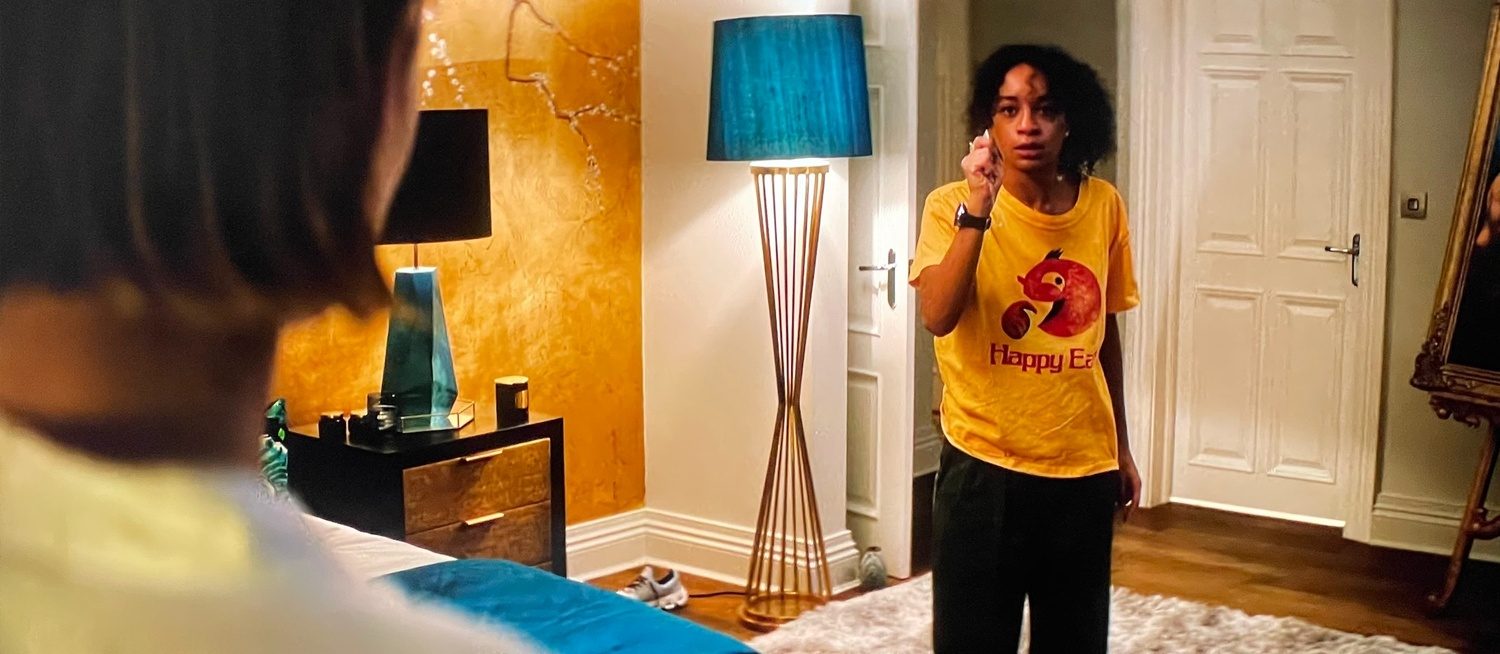

Season 7 of Black Mirror opens with “Common People”, a bleak but effective episode that explores the commodification of life and the disturbing lengths to which individuals must go just to survive under late capitalism. Directed by Ally Pankiw and written by Charlie Brooker and Bisha K. Ali, the episode follows Amanda, a schoolteacher whose life is prolonged by a tech start-up’s experimental neural service after she’s diagnosed with a brain tumor. Her husband, Mike, agrees to a deal that keeps her alive via synthetic brain tissue and cloud-based support, but it comes at a monthly fee.
While predictably grim, the premise paints a disturbingly plausible vision of a future where simply existing is subject to subscription tiers. The episode could have taken this concept further and explored multiple people’s experiences with the subscription, but it’s understandable why the focus remained on just a single couple. Amanda’s blackouts, during which she unknowingly delivers advertisements, are a chilling touch that echoes concerns about humanity’s growing dependency on technology and the increasing intrusion in the digital age. A moment involving normalizing extinct bees further reinforces the grim parallels to our possible future.
While the allegory is effective, the episode lacks nuance. Much of the narrative feels predictable, and the messaging can be a bit heavy-handed. However, the second half of the episode regains momentum, culminating in a harrowing conclusion that sticks the emotional landing. The final scenes deliver a gut punch that elevates the episode above its more predictable elements.


“Common People” is less about plot twists and more about the horrors of economic dependency. While not the most subtle entry in the show, it serves as a strong reminder of Black Mirror’s theme of how technology doesn’t create dystopia, it accelerates the one we already live in.
Rating 6.5/10
Episode two, “Bête Noire”, offers a more engaging first and second act but a sloppy third one. A psychologically tense story, shifting the show’s focus from overt dystopia to something more personal. Directed by Toby Haynes and written by Charlie Brooker, the episode centers on Maria, a polished executive at a chocolate company, who is thrown off balance when an old classmate, Verity, resurfaces during a focus group, and seems to be quietly rewriting her entire life.
What begins as a character-driven psychological thriller quickly veers into sci-fi territory. The episode toys with ideas of perception, memory, and revenge, with Verity revealed as the mastermind behind a quantum-reality-manipulation pendant. Rosy McEwen delivers a standout performance as Verity, walking the line between tragic figure and unsettling villain, with a particularly memorable scene involving her chugging an entire thing of almond milk, cementing her as a memorably unhinged presence.
While the episode starts strong, its final act falters. Verity’s transformation from a slighted outcast to a near-omnipotent multiverse hacker stretches believability, and the implications of a quantum computer being used for petty personal revenge are never fully explored and feel underdeveloped, more like a leftover plot point from one of Netflix’s countless dystopian sci-fi offerings. There’s a missed opportunity to explore the philosophical implications and deeper consequences of technological manipulation. Imagine if the episode had centered on Verity using AI to subtly alter messages and videos, which could have opened the door to so many conversations, something that many shows have touched on yet.


Still, the episode is effective in capturing the show’s signature tone. Its ending, while rushed and slightly absurd, offers a satisfying role reversal that sees the manipulator become the god-queen of her own timeline, a dark switch of events.
Ultimately, “Bête Noire” is a solid entry in the season, bolstered by strong performances and an intriguing concept, even if it doesn’t fully realize the depth of its own premise.
Rating: 6/10

